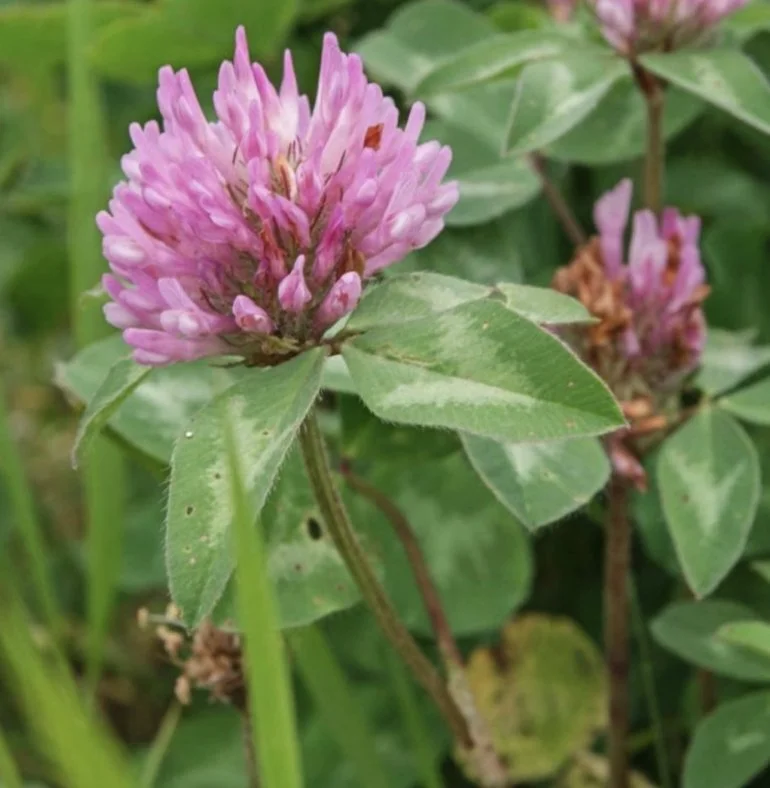Red Clover
Red Clover (Trifolium Pratense) is so common, yet most people today are completely unaware of its enormous healing potential, and its use as a wild edible. Native to UK, red clover was one of the first known fodder crops grown and used for livestock, and to improve the soil quality. It was often worn or carried in a pocket to give protection from snakes, in both the literal and metaphorical sense. It was also used to provide a shield from negative influences and to help one recover from heartbreak of any kind. It has long been a prized medicinal herb for both children and adults. The usual method of preparation is to use the aerial parts in infusions, decoctions, salves and ointments or they’re made into a tincture.
- Excellent remedy for respiratory conditions like bronchitis, whooping cough, relieves congestion, relaxes spasmodic coughing fits, and its expectorant properties helps to thin mucus and expel it from the respiratory tract.
- Very useful for women experiencing menopausal symptoms. Studies have shown that using 80mg of red clover isoflavones greatly reduces hot flushes, improves sleep and reduces estradiol levels, which cause weight gain. Also prevents skin aging due to oestrogen depletion.
- A 2012 study found that one of red clover’s primary isoflavones causes cancer cells to die.
- Improves bone density and helps with osteoporosis. A 2004 study showed that its isoflavones have a protective effect on the lumbar spine by preventing bone loss.
- It’s an amazing food for grazing livestock animals and used as a companion plant, it fixes nitrogen into the soil.
- Lessens the frequency and severity of night sweats , fevers and hot flushes.
- Reduces hypertension and protects cardiovascular system.
- Lowers harmful cholesterol levels and boosts circulation.
- Useful ingredient in cooling salves and ointments for external use.
- It’s also edible.
*Please Note:
Due to its ability to mimic the action of female hormones, red clover should be avoided during pregnancy and lactation.
As it‘s very effective at thinning the blood, red clover is not recommended for people taking blood thinning medication or those taking birth control pills.
Whilst studies have shown red clover to have very promising anti-cancer potential, it is not recommended for all types of cancer. Please consult with your healthcare provider for medical advice before adding it to your healthcare regimen.
As always, we do not make any attempt to diagnose or treat anyone’s medical condition, we merely share information about how these valuable plant allies have been and are still being used today.
We wish to reiterate, we are not responsible for anyone else’s healthcare decisions, only our own, and we do not accept liability for any harm, loss or injury caused by anyone choosing to act upon this information without prior consultation with one’s healthcare provider.
